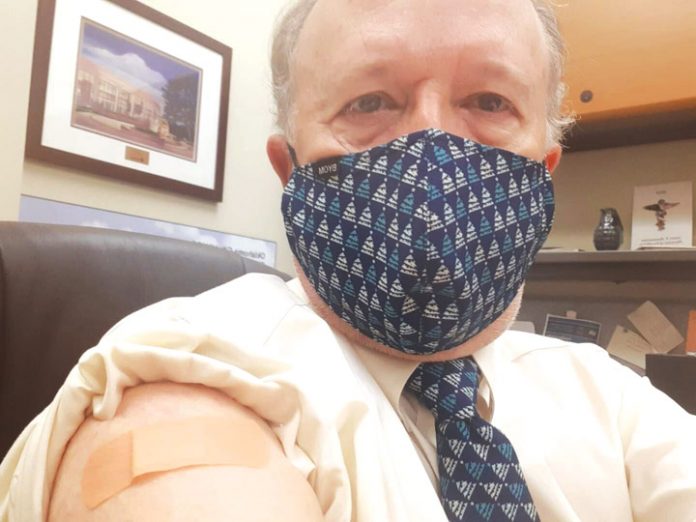
Although roughly half the U.S. population has received at least one Covid-19 shot, new cases are still averaging more than 50,000 daily nationwide. It’s a sign the virus isn’t going away, according to experts at the Oklahoma Medical Research Foundation.
“Some have the idea that we can still reach ‘Covid zero,’” said OMRF immunologist Eliza Chakravarty, M.D. “Unless close to 100% of the population gets vaccinated, that’s unlikely.”
Nevertheless, she said, “It doesn’t mean that we can’t get back to something that looks like normal.”
Covid-19 seems poised to join “endemic” viruses like influenza and chickenpox, which remain in perpetual circulation. “These kinds of viruses are always present but not in huge, pandemic-level outbreaks,” said OMRF physician-scientist Hal Scofield, M.D.
Scofield said the best-case scenario is that with widespread vaccination and growing natural immunity, Covid-19 could resemble measles.
“Like Covid-19, measles spreads easily through the air and once wreaked havoc on our communities,” he said. “But thanks to vaccination, it went from being common to just a few hundred cases most years in the U.S.”
However, because of vaccine hesitancy, Chakravarty predicts Covid-19 incidence in the U.S. will more likely resemble the flu.
In 2017-18, the U.S. Centers for Disease Control and Prevention estimates the country experienced 45 million cases of influenza and 61,000 flu-related deaths. “Despite these statistics, the flu doesn’t bring life to a halt,” said Chakravarty.
Although Covid-19 does not mutate as rapidly as influenza does, the dominant variants that have emerged appear more contagious than the original strain. That’s not surprising, said Chakravarty, and another clue that the virus is here to stay.
“The virus wants to survive, so becoming more contagious and, we hope, less lethal is helpful from an evolutionary perspective,” said Chakravarty. “The effects of this coronavirus will likely grow milder over time, and our immune systems should develop ‘memories’ of the virus that will better protect us when exposed.”
Still, said Scofield, the best way to take the bite out of the virus is widespread vaccination.
“Recent CDC shows that infections among the fully vaccinated are rare, but have been reported,” said Scofield, noting that the chance of serious illness and death when fully vaccinated is near zero. “Whether vaccinated people can spread the virus is still not known. That means that in addition to rolling up our sleeves for a shot, following masking and social distancing practices remains critical.”












